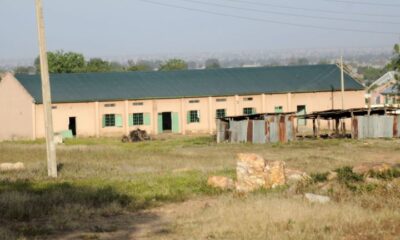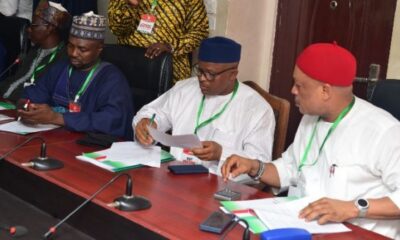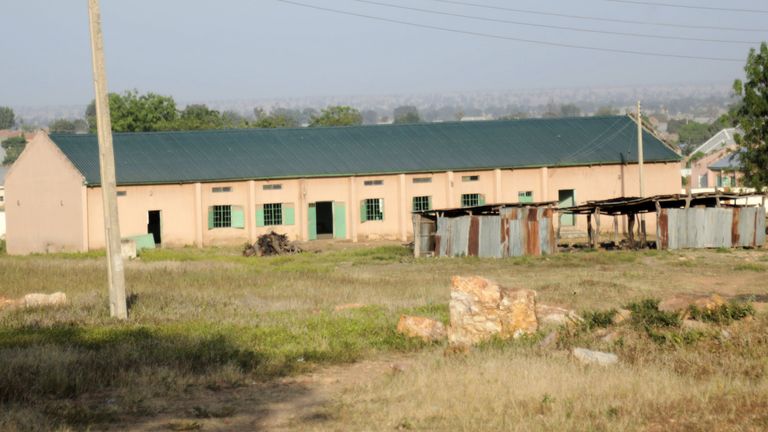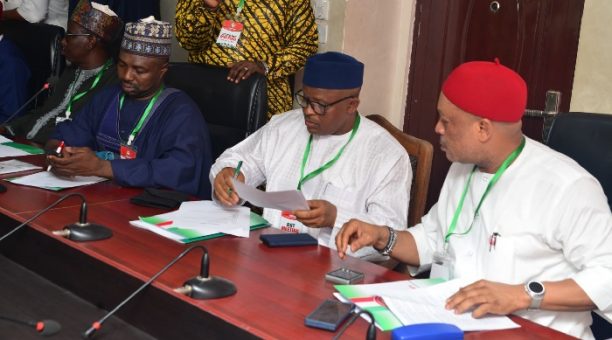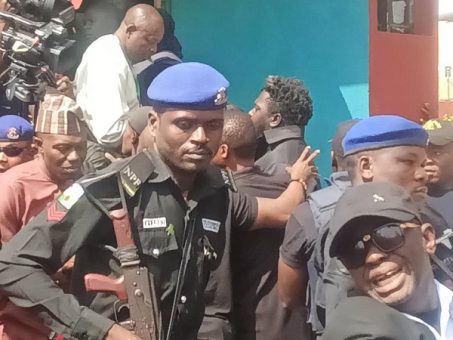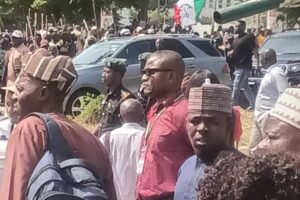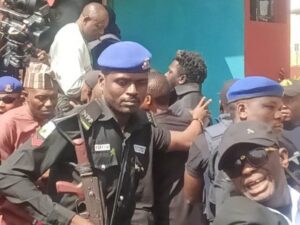A factional National Executive Committee of the Peoples Democratic Party has approved the expulsion of Oyo State Governor Seyi Makinde, Bauchi State Governor Bala Mohammed, Zamfara State Governor Dauda Lawal, former Board of Trustees Chairman Senator Adolphus Wabara, Senator Kabiru Tanimu Turaki, Deputy National Chairman (South) Taofeek Arapaja, and several other members over alleged anti-party activities.
The committee also dissolved the State Executive Councils in Bauchi, Oyo, Zamfara, Yobe, Lagos, Edo and Ekiti States.
These decisions emerged from the party’s 103rd NEC meeting held on Tuesday at the PDP national secretariat in Abuja.
Presenting the memo recommending the expulsions, Acting National Chairman Alhaji Mohammed Abdulrahman said the affected members were sanctioned for allegedly disregarding court judgments, a situation he said brought the party into disrepute.
The communiqué of the meeting was read by the National Secretary, Senator Samuel Anyanwu.
According to the communiqué, “The National Executive Committee (NEC) met on 18 November 2025 to address recent developments affecting the unity, stability, and constitutional order of our Party. At a time when Nigerians look to the PDP for leadership, NEC convened to uphold truth, justice, discipline, and respect for the rule of law.”
The statement noted that “NEC expressed deep concern over the actions of some members who violated subsisting court orders by organizing and attending a purported and unauthorized convention,” adding that the action triggered confusion, factionalisation, and the defection of governors and legislators nationwide.
The communiqué emphasised that “NEC reaffirmed that the PDP draws its legitimacy from strict adherence to its Constitution and that of the Federal Republic of Nigeria, not from impunity.”
The committee noted that it received a report from the Acting National Chairman outlining breaches of Articles 58(1) and 59(1), including anti-party activities, disobedience to court orders, and conduct bringing the party into disrepute.
NEC subsequently approved the commencement of disciplinary procedures against Adolphus Wabara, Olabode George, Ben N. Obi, Kabiru Tanimu Turaki (SAN), Bala Mohammed, Oluseyi Makinde, Dauda Lawal, Taofiq Arapaja, Setonji Koshoedo, Okechukwu Obiechina Daniel, Woyengikuro Daniel, Mohammed Kadade Suleiman, Emmanuel Ogidi, Sumaila Adamu Burga, Umar Sani, Udom Emmanuel, and Emmanuel Enorden.
The communiqué added that “NEC further resolved that Chief Ali Odefa must refund all salaries and allowances collected after his expulsion on 12 December 2024.” It also ratified Hon. Chidiebere Egwu Goodluck as Acting National Vice Chairman (South East).
NEC also endorsed the dissolution of the State Executive Committees in Bauchi, Oyo, Zamfara, Yobe, Lagos, and Ekiti States. It directed the National Working Committee to set up caretaker committees and commence fresh congresses immediately, while the Edo State Exco led by Barr. Nosa Ogieva was approved.
The committee mandated deputies in all vacant National Working Committee positions to assume acting roles with immediate effect.
Furthermore, the NEC confirmed the appointment of Alhaji Mohammed Abdulrahman as Acting National Chairman of the party.
The communiqué added that NEC directed the party’s legal team and NWC to begin immediate constitutional steps to recover the seats of elected officials who defected from the PDP, citing Sections 68(1)(g) and 109(1)(g) of the 1999 Constitution.
NEC also approved a party-wide reconciliation drive aimed at resolving internal disputes and restoring unity, while stressing that reconciliation efforts would not supersede discipline. It also announced that a nationwide membership audit and revalidation exercise would begin ahead of the 2027 elections.
According to the statement, NEC acknowledged the anxieties among party members but assured them that the decisions were taken to stabilise and strengthen the PDP.
The communiqué stated that “The NEC affirms that the era of indiscipline is over. The PDP will not bow to lawlessness or personal ambition,” adding that the party intends to rebuild with “unity, discipline, and renewed purpose” ahead of the next electoral cycle.
Earlier in their opening remarks, the BoT Chairman, Senator Mao Ohuabunwa, and the Acting National Chairman, Alhaji Mohammed Abdulrahman, urged members to remain steadfast and expressed confidence that the PDP would overcome its internal challenges.

 BIG STORY21 hours ago
BIG STORY21 hours ago
 BIG STORY2 days ago
BIG STORY2 days ago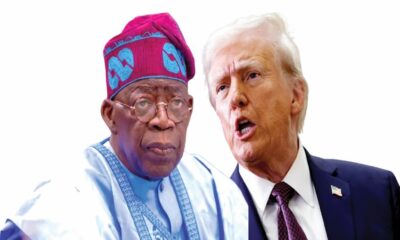
 BIG STORY2 days ago
BIG STORY2 days ago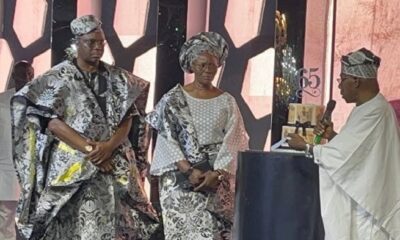
 BIG STORY1 day ago
BIG STORY1 day ago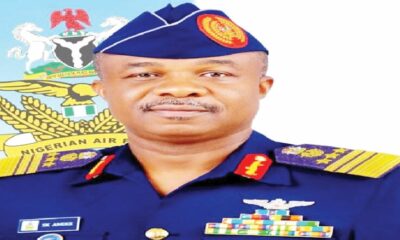
 BIG STORY19 hours ago
BIG STORY19 hours ago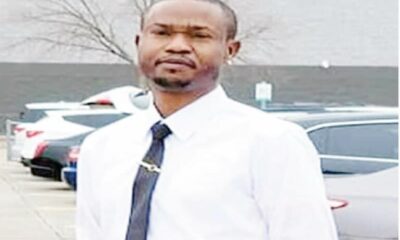
 BIG STORY2 days ago
BIG STORY2 days ago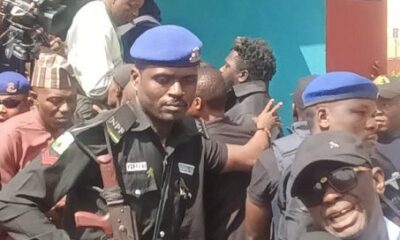
 BIG STORY14 hours ago
BIG STORY14 hours ago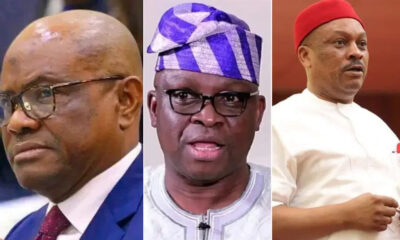
 BIG STORY3 days ago
BIG STORY3 days ago







